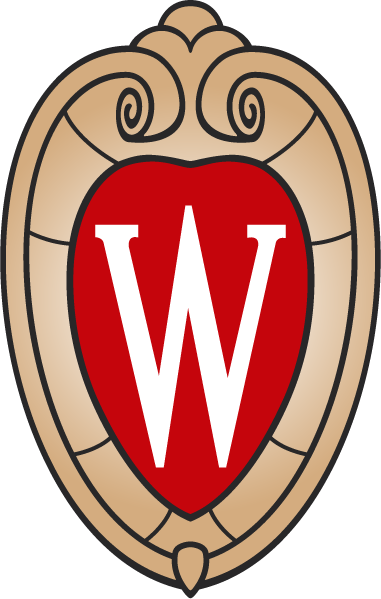
Course Overview
This course provides a broad yet detailed overview of the railroad industry, including its history, infrastructure, and operational systems. Participants will explore key topics such as track structure, special trackwork, bridges, signals, and operations planning, with a focus on both design and maintenance. Whether you're a consultant, engineer, agency staff member, or supplier, this course equips you with the technical fluency to contribute effectively to rail projects and operations.
Learning Outcomes
- Understand the components and functions of rail infrastructure, including track structure, alignment, and special trackwork.
- Interpret railroad operations planning tools such as track charts, signal systems, and scheduling models.
- Apply knowledge of regulatory frameworks, bridge management, and positive train control to real-world rail scenarios.
Who Should Attend?
- Consultants, contractors, and suppliers working on rail-related projects.
- Local, state, and federal officials involved in transportation planning or oversight.
- Railroad employees and transit agency staff seeking a technical introduction to rail systems.
Course Outline
Railroad Industry Overview
- Introduction to the world of freight, transit, inter-city passenger, high-speed and other rail.
- History/railroad facts
- Track network
- Train types/car types
- Industry trade groups
- Regulatory agencies
Track Structure
Learn in detail the importance and standard practices of all aspects of the track structure beginning with the importance of drainage and subballast up to the top-of-rail for a variety of applications and situations.
- Drainage
- Subballast
- Ballast
- Ties
- Rail
- Special trackwork: turnouts, frogs, and other
Track Alignment
- Design and maintenance characteristics
- Track gauge
- Vertical alignment
- Horizontal alignment
- Track stiffness
- Clearances
- Design Criteria
- Difference between rail and highway, freight and transit
Special Trackwork
- Turnouts and Switches
- Frogs
- Crossovers and Diamonds
- Guardrails
Bridges and Structures
- Bridge types
- Design loadings
- Bridge ratings
- Inspections and FRA 237 Bridge Management
Signals
- Block signal systems
- Track circuits
- Aspects and indications
- Positive train control
Operations Planning & Scheduling
- Track Charts
- Signaling and train movements
- Modeling
- Stringlines
- Operations class exercise
Instructors
Jeff Keating
Jeff Keating, PE is currently a Senior Project Manager-Rail with WSP in Chicago with 44 years of experience in the design, construction and maintenance of rail transit and railroad projects. He has been employed by Class 1 railroads, a transit agency, a contractor and as a consultant. He has held senior engineering and project management roles in dozens of transit, rail, and highway projects throughout the United States and has experience in program management, project management and quality management.
Michael Loehr
Michael J. Loehr, PE, is the Global Technology Leader at U.S. Rail & Transit for Jacobs Engineering in Richmond, Virgina. Loehr leads the development of innovative and cost-effective designs for rail and transit practice projects throughout the United States and assists project managers and project teams in response to specific client needs and project requirements. He has more than 44 years of extensive engineering, design, and construction experience on a wide variety of railroad industry projects, including 10 years with Consolidated Rail Corporation (Conrail), and 34 years of consulting. His expertise and insight have been developed through his work on passenger rail facilities, high speed rail projects, freight rail installations, railway bridges, commercial and industrial sites, and highways. He has worked on projects throughout North America as well as Indonesia, China, Jamaica, Africa, and the Middle East.
Peter Schierloh
Peter Schierloh, PE, is a seasoned railroad bridge engineer with over two decades of experience in the field. He currently serves as a Project Engineer at SW Bridge Engineers, LLC in DeForest, Wisconsin, a role he has held since the firm’s inception in 2007. Peter specializes in the inspection, design, and rating of railroad bridges across the United States. Prior to this, he worked with E80 Plus Constructors, LLC, managing railroad bridge construction projects. He earned his Bachelor of Science in Civil and Environmental Engineering from Michigan Technological University in 1996. Peter is a licensed Professional Engineer in multiple states and actively contributes to the industry as a member of AREMA Committee 10.
Past dates
Introduction to Railroad Engineering and Operations
Course #: RA00336Introduction to Railroad Engineering and Operations
Date: Mon. March 10, 2025 – Tue. March 11, 2025ID: RA00336-D712
interpro.wisc.edu/RA00336
Fee:
- $1,295
-
NOTE: This course will only be offered in the online format. Due to unforeseen circumstances we will not be able to offer the in-person enrollment option for this course. All attendees will be online and meet in the Zoom classroom.
Online attendance fee includes online instruction and course materials. Online attendees will access course sessions via the Zoom web conferencing platform.
- CEU: 1.3
- PDH: 13
Introduction to Railroad Engineering and Operations
Date: Mon. October 28, 2024 – Tue. October 29, 2024ID: RA00336-D362
interpro.wisc.edu/RA00336
Fee:
- $1,295
-
Face-to-Face Fee covers morning and afternoon breaks, scheduled lunches, course materials and face-to-face instruction.
Online Fee covers course materials and online instruction.
- CEU: 1.3
- PDH: 13
